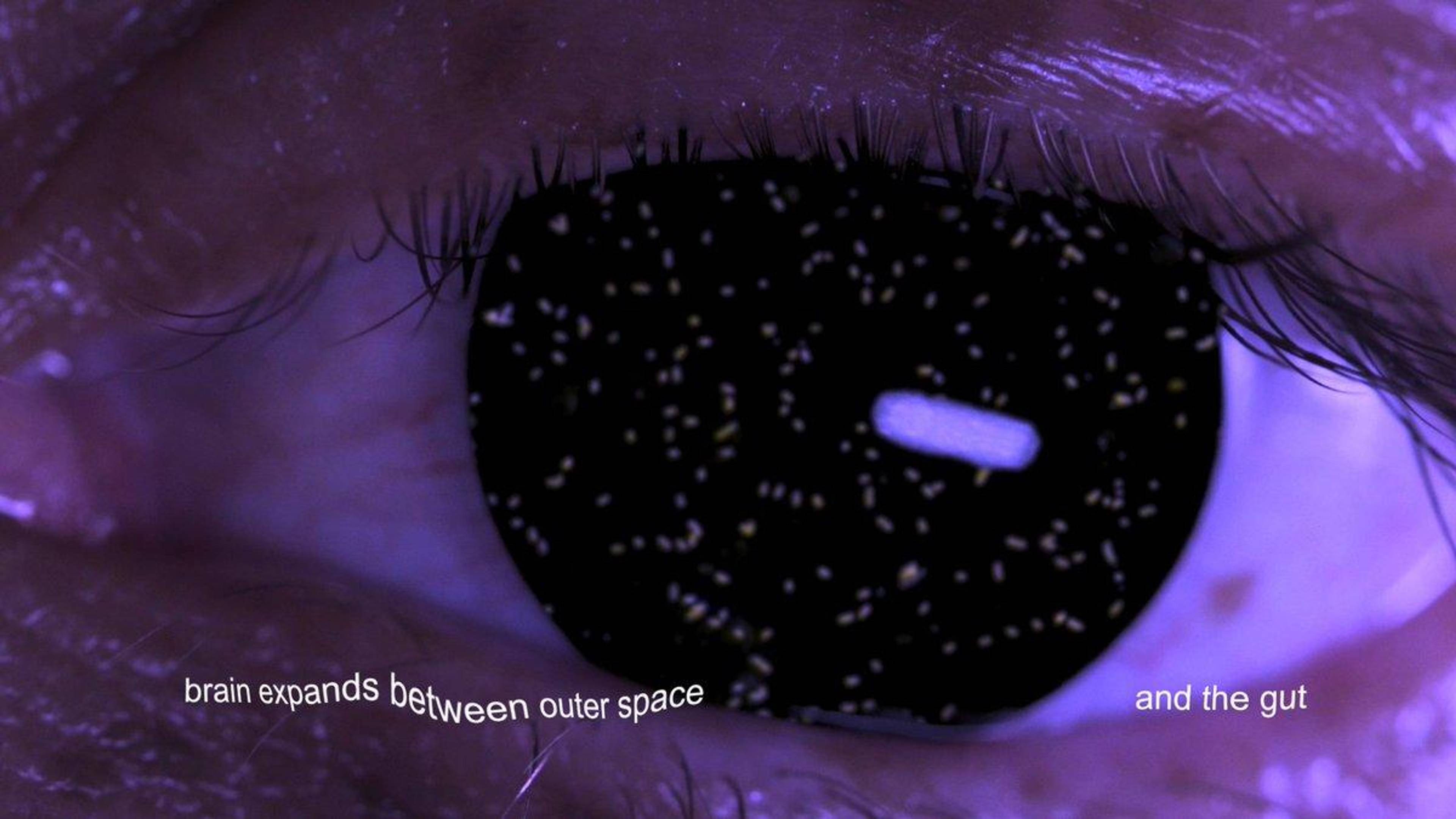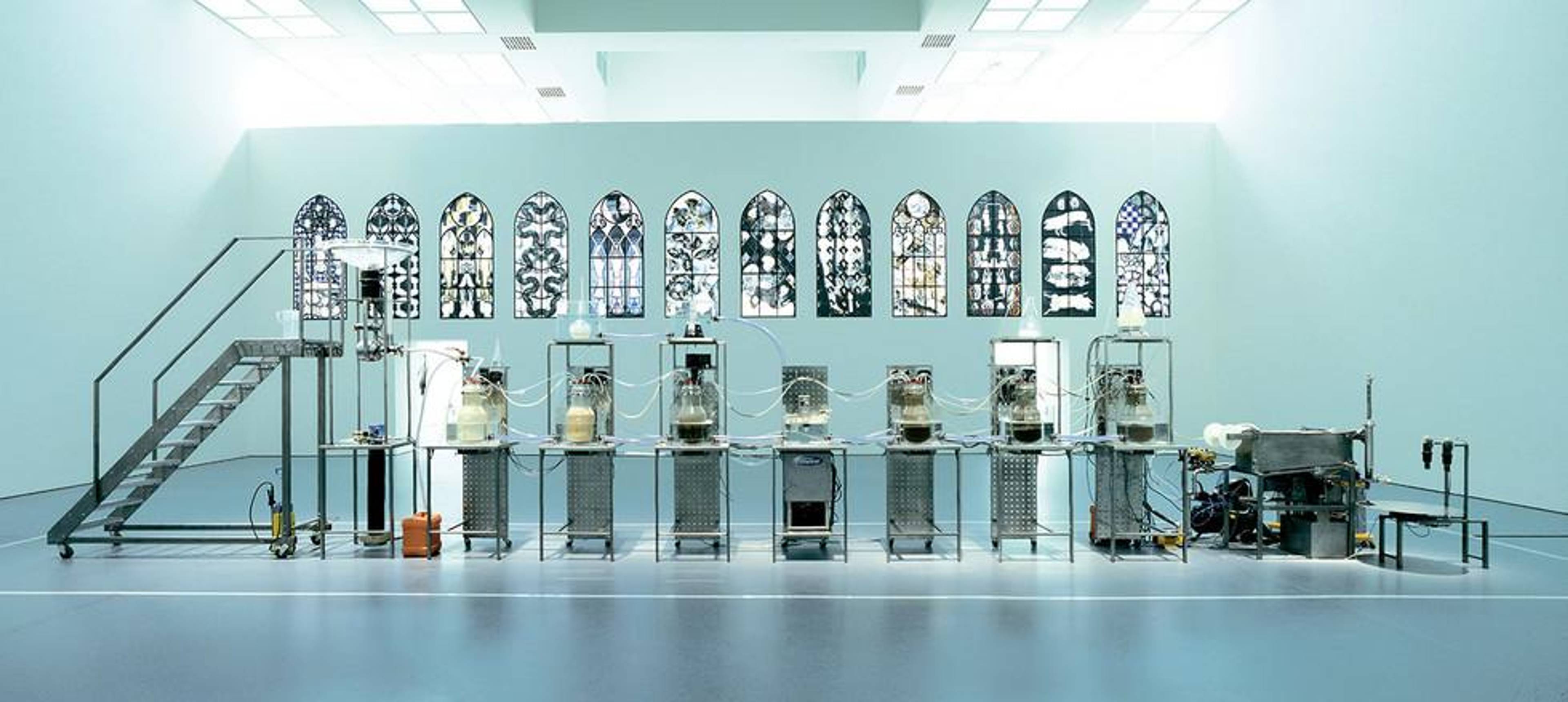– All italics are from Brooks Haxton’s 2003 translation of Heraclitus’s Fragments –
Scobies
On the fifteenth of June a scoby turns up on my doorstep.
It’s journalistic cliché to start a piece of prose with the etymology of something but at this point I’m useless to it. Slowly checking and rechecking the definitions and the etymology of words is all that’s really left to the raging mildly dyslexic and Extremely Online fryheads of our brave new era and compared to the rituals of all the other screaming rooms, it must be one of the more harmless faiths.
Also I can’t seem to bite down on the astrology bit and treat its resurgence with suspicion (what use are these people’s wits who let themselves be led and
people still treat specialists
as if their nonsense
were a form of wisdom)
… finding it’s interpretative gaps ripe for abuse as in the ‘divine’ synchronicities of apps like Co-Star that collate your data and may or not have access to a larger digital psychological profile (however faint) and so (one imagines) are easily able to direct you to the pumping stations of suggestion and want. I mean maybe that’s not so terrible. But it’s not for me.
So, I don’t check birth charts. I snake up Indo/Euro roots plus a haphazard selection of contemporary definitions on junk sites and online dictionaries. People say words are powerful but what does that word mean power? Influence? Strength? Eternity? Is it the flame Heraclitus was obsessed with? The E in Einstein’s famous theory? From certain angles people do grow into these set of loose associations that make up a name, perhaps that’s what it is. Essence.
If you take the creative power of words seriously then you have to respect this branch of reverse engineering crank ontology too: always check the source. In the beginning was the word, but before the bible was Logos and before that who knows.
the best choose progress toward one thing, a name
So anyway I stare at the SCOBY and I start reading and I get that ping when I check the word ‘syntrophic’. To follow it back to the Greek it means cross-nourishment. SCOBYs (symbiotic cultures of bacteria and yeast) are known as the Mother Culture and their offspring are daughters. I think of the beautiful new mother who sent this one while she still had a sunrise inside her, and of the ‘Mother Culture’ of Daniel Quinn’s Ishmael books (the excellence of apes!) as I make my first batch of fermented tea a day after her baby is born. It’s the most thoughtful birthday gift I’ve received since someone gave me a sword for my journey onward from Berlin.
Still from Holobiont, 2018. "An egg is full of potential"
In Pickles
While waiting for the water to cool I become possessed with the spirit of pickling which stops me from eating the SCOBY which looks like a delicious implant or some fillet of sugar and sponge. Soon my fridge is empty and the kitchen is covered in newly filled jars. Thank god I’m a natural born hoarder. I allow myself briefly to think of someone who liked to quote parts of his own public lectures about environmental destruction at the hands of technology but never recycled, certainly didn’t compost or grow much more than a few sad-act houseplants and used to yell about “the goddamn jars” clogging up the kitchen when we shared a roof. Having enough jars is for geniuses only I guess.
Anyway the SCOBY water took a jar each of red onions, celery stalks, cucumber, beets and a glass of cold-brewed green tea to cool plus however long looking up kim chi pots and fermentation weights. They stand to attention on the counter like a vinegar water battalion with shining insides.
A new friend sends a recipe for a relish made by a Canadian telephone operator with a voice so lovely that a British lord “making regular telephone calls from local taverns to the livery stable for a horse and carriage” became infatuated with her and married her. I convert it: an appearanced-out influencer falls in love with her Uber driver after following him on twitter. What would they make instead of a mustard relish? Sick burns? Perhaps just another kind of relish. Pickles haven’t changed much in thousands of years. Aristotle was obsessed with cured cucumbers and the Romans loved sticking things in brine and honey. The brackish and the sweet. We are what we eat or we eat what we are?
Wim Delvoye, Cloaca, 2000
Last things lasting
I’m thinking distantly again about the “anthropocene” as a term which fell out of flavour. New human. Its word-shine has worn dull. Good. Who wants to be remembered as a race of narcissists, putting ourselves at the centre of everything else? Not the fields of sugarcane, not the yeast. Thank god they don’t speak our language. As a word it made us forget for a moment that every aeon has undergone climate disaster, if only as spectacle. That even in our industrial hubris we aren’t special or more dangerous for being the newest, the latest ‘cene. They used to call it wrath or the voice of God. Weather as a voice beyond words. So how to negotiate a plague a drought or other blight when God is dead? Build false idols? Or cut into the thicket of words laid down before? Perhaps palaces in the sky and stoned kings will help … perhaps not. Until then, bittersweet tea.




